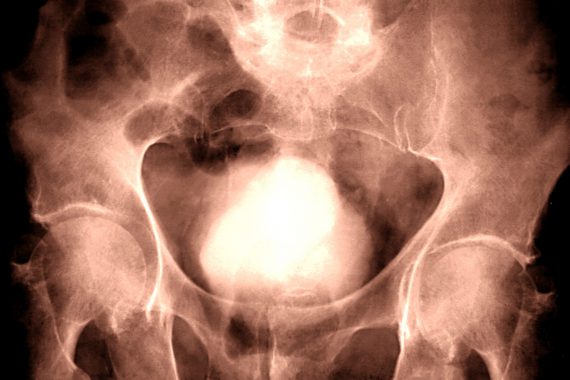A new urine test could predict the progression of prostate cancer without the need for invasive tests such as biopsies, a study has found.
The test was able to detect the presence of prostate cancer and determine how at risk patients were for disease progression, which researchers hope will reduce rates of radical treatment in men under active surveillance for prostate cancer.
The researchers looked for prostate cancer biomarkers in urine samples provided by men under investigation for cancer in urology clinics who had been classified as having no evidence of cancer or having low-, intermediate- or high-risk prostate cancer.
They found that the levels of biomarkers in the sample correlated strongly with the risk classifications that the men had already been given.
They also found significant differences in the biomarker profiles of men under active surveillance who progressed to disease requiring clinical intervention and in the profiles of men under surveillance who did not.
The men under surveillance were followed up after five years, suggesting that the biomarker profiles could provide early information on how disease could progress and what kind of treatment men are likely to need in the future.
The researchers said in the paper, published in the BJUI, ‘This prognostic information could potentially aid the reduction of patient-elected radical intervention in active surveillance men which in some cohorts can be as high as 75% within three years of enrolment. Indeed, we would view the use of PUR within the context of active surveillance as its major potential clinical application.’
Dr Jeremy Clark, one of the study authors from the UEA Norwich Medical School said: ‘This research shows that our urine test could be used to not only diagnose prostate cancer without the need for an invasive needle biopsy but to identify a patient’s level of risk. This means that we could predict whether or not prostate cancer patients already on active surveillance would require treatment.
‘If this test was to be used in the clinic, large numbers of men could avoid an unnecessary initial biopsy and the repeated, invasive follow-up of men with low-risk disease could be drastically reduced.’
NICE announced in 2018 that patients with stable prostate cancer should be transferred to their GP for regular six-monthly reviews from six months after their PSA levels measure as stable, as opposed to remianing under hospital care for two years.
Pulse October survey
Take our July 2025 survey to potentially win £1.000 worth of tokens












